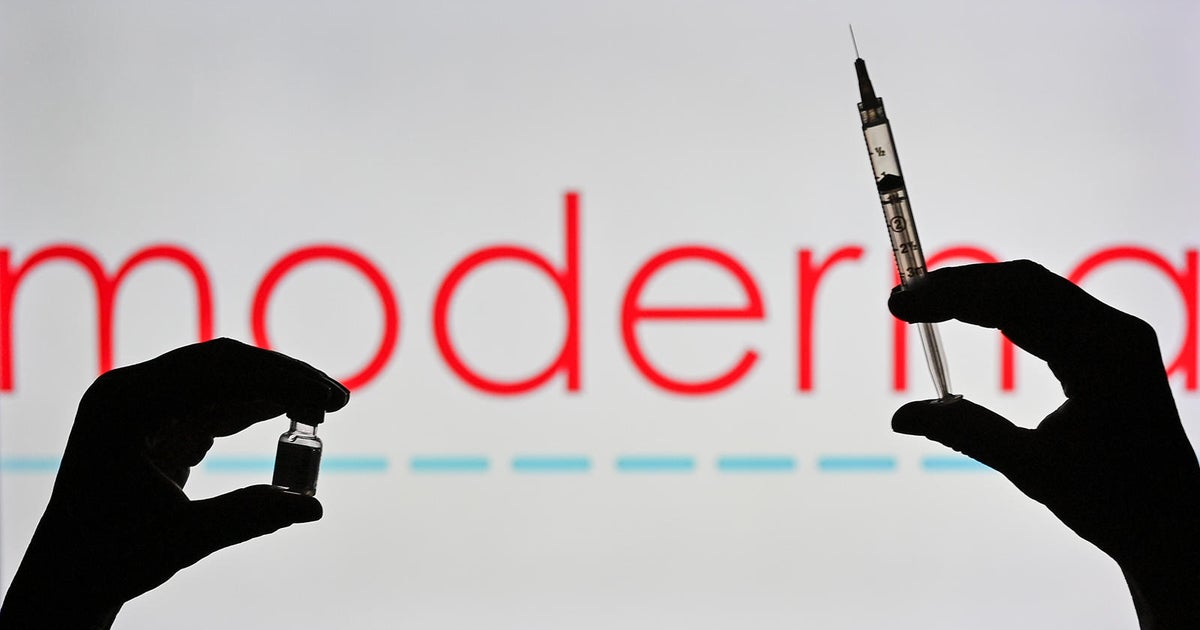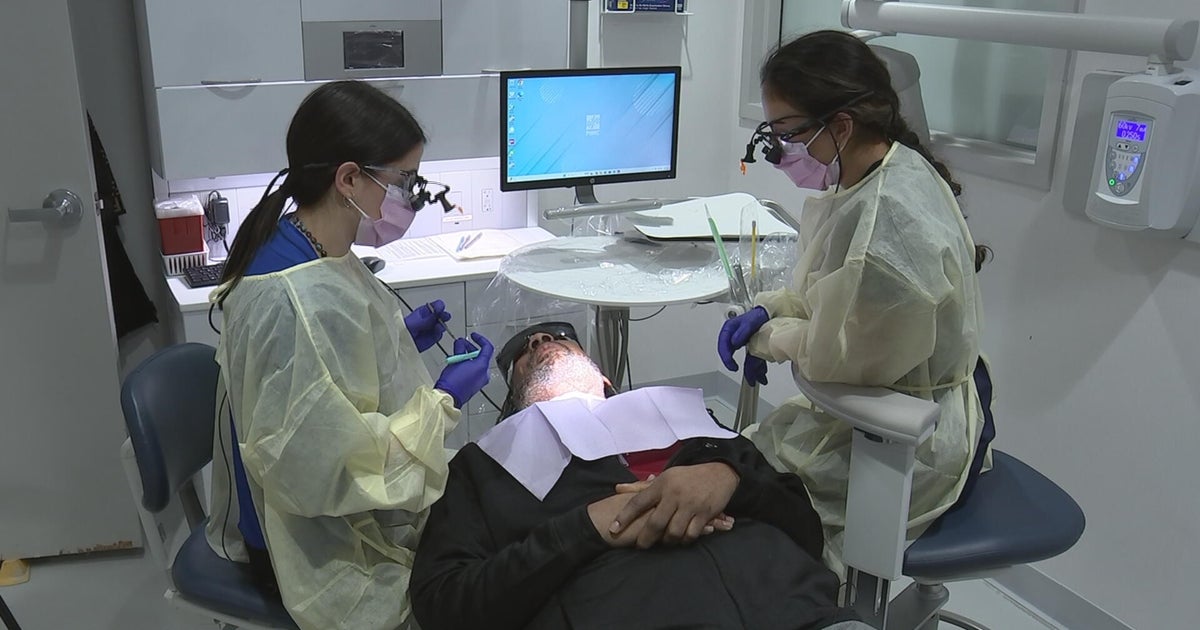Transcript: Surgeon General Jerome Adams on "Face the Nation," December 20, 2020
The following is a transcript of an interview with Surgeon General Jerome Adams that aired Sunday, December 20, 2020, on "Face the Nation."
MARGARET BRENNAN: Mark Strassmann, thanks. We want to go now to the surgeon general, Vice Admiral Dr. Jerome Adams. Good morning to you.
U.S. SURGEON GENERAL DOCTOR JEROME ADAMS: Good morning, MARGARET.
MARGARET BRENNAN: Before we get to what's happening here in the U.S., I want to ask you about this news overnight that a number of European countries are now shutting down travel from the U.K. because of a new strain of the coronavirus. What do we know about the threat it poses? And do our current vaccines work against it?
DR. ADAMS: Well, very important for people to know that viruses mutate all the time, and that does not mean that this virus is any more dangerous. We don't even know if it's really more contagious yet or not or if it just happened to be a strain that was involved in a super spreader event. Right now, we have no indications that it is going to hurt our ability to continue vaccinating people or that it is any more dangerous or deadly than the strains that are currently out there and that we know about.
MARGARET BRENNAN: When people hear shutdowns elsewhere, they worry about things happening here. Are you just saying we don't really know yet the details of this latest strain and- and how lethal it could be?
DR. ADAMS: Exactly. The most relevant point is that it doesn't change anything we've been telling you. It just further reinforces the fact that we need to wash our hands, wear a mask, watch our distances, keep our household gathering small, because if this is a mutation that is more contagious, then that just means that we need to be that much more vigilant while we wait to get vaccinated.
MARGARET BRENNAN: I want to ask you about the current vaccine distribution. Pfizer, which has its vaccine already out there, shipped out about three million doses last week. But according to Bloomberg's data and The New York Times, there were about 170,000 inoculations. The CDC has that number a little bit higher at 272,000 actual shots in the arm. Do you expect the pace to pick up?
DR. ADAMS: I absolutely expect the pace to pick up. Something I've said all along to people is that this is going to be the most technically, logistically difficult vaccination project of all time. And it's why we have career officials like General Perna, very good man, the best in the world working on this. And we- we started slow. We're going to continue to increase. So, the American people should be hopeful about vaccines, but we also need to remain vigilant.
MARGARET BRENNAN: But General Perna, who you just mentioned there, runs the logistics and he somewhat apologized, taking responsibility for the problems in the past week with the rollout of vaccine to the states. Should there have been more hands-on role played by health professionals like yourself in the logistics? I mean, was this just poor planning by the federal government?
DR. ADAMS: It absolutely was not poor planning. And I want the American people, again, to know that the numbers are going to go up and down. There's what we plan. There's what we actually allocate. There's what's delivered, and then there's what's actually put in people's arms.
MARGARET BRENNAN: You've been outspoken about your concern regarding communities of color in particular. COVID says Black Americans are dying at nearly two times the rate of white Americans. It's the COVID-19 Tracking Project. The Kaiser Foundation says 35% of Black adults say they definitely or probably would not get vaccinated. How are you going to persuade the Black community in the throes of this crisis to overcome that?
DR. ADAMS: Well, I'm the United States surgeon general, but make no mistake about it, I'm a African-American, I grew up poor, Black, rural. I know that long before COVID there were many diseases: hypertension, cancer, diabetes that were plaguing communities of color. And COVID just unveiled those disparities that have been around for a long time. I've talked previously about the- the history of- of mistreatment of communities of color, the Tuskegee experiments, the terrible treatment of Henrietta Lacks and her family, and how they just took her cells without her permission. We need to understand that that distrust comes from a real place. It actually comes from my office. Several surgeons general oversaw for 40 years the Tuskegee studies, where a treatment was denied to Black men. And I walked past their pictures every single day when I go into my office. So believe you me, this legacy is important to me and- and helping restore that trust is important. We've had many people involved in the review and actually study participants of color. And what I want to tell people most of all is I walk the talk. I got vaccinated on Friday. I actually feel great. You know, my mother-in-law and my mother are watching and they've been asking me all weekend, how are you feeling? I feel great. And I hope people will get the vaccine based on information that they get from trusted resources because it's okay to have questions.
MARGARET BRENNAN: Yeah.
DR. ADAMS: What's not okay is to make poor health decisions based on misinformation.
MARGARET BRENNAN: That same study from the Kaiser Foundation shows that this vaccine hesitancy cuts across racial lines. It also cuts across political ones. But I want to drill in here because the highest amount of hesitancy about taking the shot is from Republicans, 42% accord- according to Kaiser. Rural residents, 35%. Wouldn't it help to persuade those Republicans if the Republican president himself came out to try to persuade them to take the vaccine he says he's so proud he fast tracked. Do you have plans to have President Trump get a shot in the arm on camera?
DR. ADAMS: From a scientific point of view, I will remind people that the president has had COVID within the last 90 days. He received the monoclonal antibodies. And that is actually one scenario where we tell people maybe you should hold off on getting the vaccine, talk to your health provider to find out the right time. So politics aside--
MARGARET BRENNAN: But that doesn't make you immune.
DR. ADAMS: --there is a medical reason--
MARGARET BRENNAN: That doesn't make you immune.
DR. ADAMS: Ah, yes, but politics aside- it- it, well, it does not. But we know that monoclonal antibodies, if you've been administered them, actually are a potential reason why medically we would tell you to hold off on the vaccination.
MARGARET BRENNAN: Okay. So, if he can't take the shot, which you're saying is for medical reasons, you think, why doesn't he at least come out and do the public service announcements to the people who voted for him, who trust him and the vaccine he says he's so proud of?
DR. ADAMS: Well, I appreciate the question and I would refer you to the White House. I can only speak for me. I got vaccinated. The vice president got vaccinated, and plenty of Republicans look at him and see him getting vaccinated. And I hope that people will talk to their trusted health providers and get the information they need to make an appropriate choice to help us reopen our economy and to get back to normal and to save lives.
MARGARET BRENNAN: And lastly, in other communities of color, I- I want to ask you in particular, there's concern about undocumented residents in this country. If people aren't legal citizens, what is the guidance? Do governors have to make the call on whether or not to vaccinate them?
DR. ADAMS: I- I want everyone to hear me. No one in this country should be denied a vaccine because of their documentation status, because it's not ethically right to deny those individuals.
MARGARET BRENNAN: But is it ultimately up to the governors to figure out how to do that, how to get people to feel comfortable to come out of the shadows, to get a shot in the arm?
DR. ADAMS: I want to reassure people that your information when collected to get your second shot, if you get the Pfizer or Moderna vaccine, will not be used in any way, shape or form to harm you legally. That is something that I have been assured of. And we tell people that all the time when they need to come in for emergency care or public health care. So, we're going to work with states and local officials and trusted organizations to make sure everyone gets the information they need and feels safe coming in to get vaccinated, because that's how we end this pandemic. That's the good news. There is a light at the end of this dark tunnel and we just need to keep running to it.
MARGARET BRENNAN: Thank you very much and have a great holiday.
DR. ADAMS: Thank you, MARGARET. I appreciate it.



